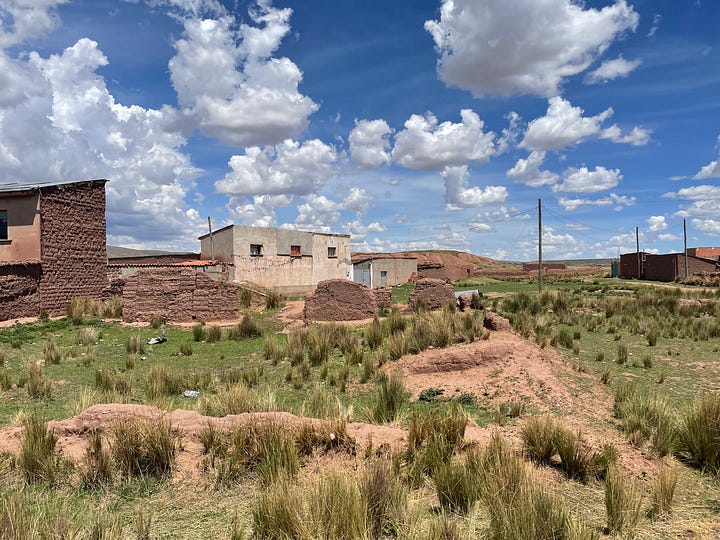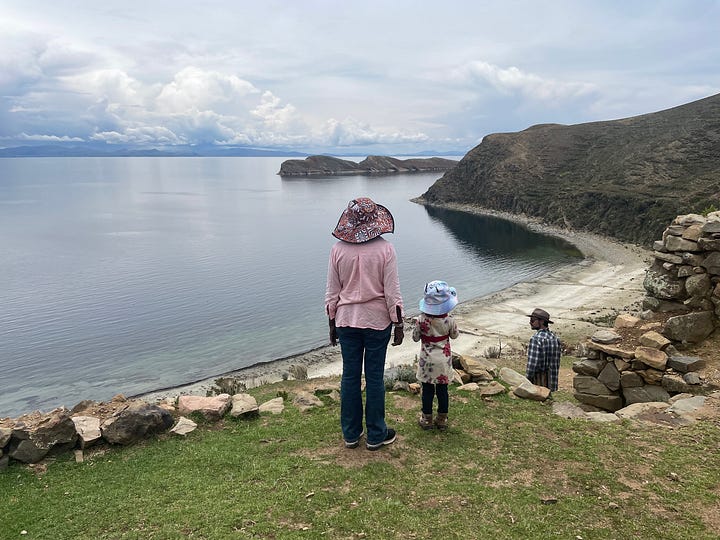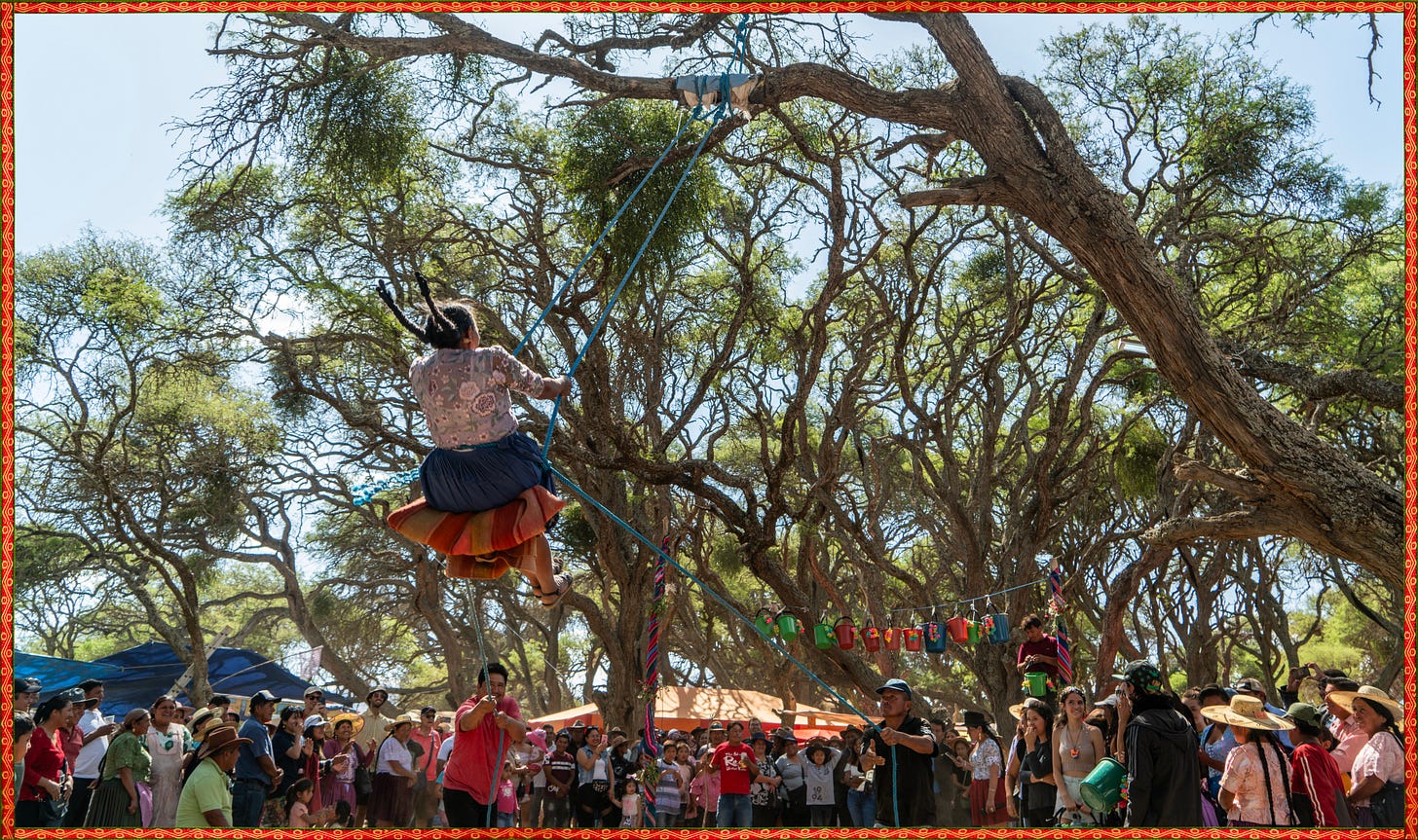It’s January 1st, the Gregorian New Year, and my family, my mom, two American friends visiting from the Bay, a local who is from the Lake and returning with us to El Alto and I are riding in minibus along Lake Titicaca, riding back to the city of La Paz. We spent the past week traveling around the lake, exploring Isla del Sol (Island of the Sun), and visiting old friends of Mateo’s. We’re tired, happy, and a tight knit crew after our week of adventure. With the spaciousness only hours long road trips can provide, we talk about everything going on in our lives. And inevitably, our jobs enter the conversation. We all work in progressive Bay Area organizations and are all struggling with governance growth pains and transitions. Many of the tensions we all were experiencing have to do with feeling unacknowledged for the work we’ve been doing.


At that very moment, I notice we’re passing a large gathering of people standing on top of a hill. They all surround a smoking k’oa (burned offering to Pachamama) with a group of men in red ponchos standing prominently front and center. We pass that group and quickly come upon another. And then another. What is this all about, I wonder.
Calixto, our local compañero, says, “It’s the changing of the guard. It happens at the beginning of the new year. The dirigentes of that community have done their year of governance duty. Now the community is acknowledging them for the work they’ve done. They are thanked and then pass the role onto the next group to take on the work of communal governance.” At that moment, I felt a wave of emotion come over me. That’s what we need! A ritual to be acknowledged and thanked for the work we’re doing and have completed.
I’m part of a worker self-directed organization, Sustainable Economies Law Center, where we support projects that redistribute wealth, democratize workplaces with collective governance practices and frameworks, and steward communal resources like land and energy. Many of these projects are part of a movement called the Solidarity Economy — a democratic, post-capitalist framework, based on solidarity, interdependence, and transformative justice. The movement in the US is heavily influenced by the movements throughout Latin America; but in all the popular education I’ve read, I’ve never heard about Bolivia's contribution to the movement. I decided to write an article for my professional community — folks working in the solidarity economy, social movement nonprofits throughout the United States, and progressive policy makers — so they can learn about the many ways Bolivians meet their communities' needs through cultural practices we could translate into solidarity economy practices. I believe we need more Indigenous, non-Western influence in how we practice solidarity and community care. Witnessing those new year rituals along the lake helped me realize there is so much anti-capitalist dreamers could learn from Indigenous Bolivian culture.
Here’s a little snippet:
Bolivian culture has made it clear to me that solidarity requires ongoing cultivation and organizing. Nearly every major festival, holiday, wedding, and political manifestation is self-organized by the people. They are always organizing something. The relationships never run dry. Bolivians are deeply invested in keeping these kinship networks flowing because they know, from recent experience and throughout history, that the state is not there to protect, provide, or support them in times of need.
If you’re interested in reading my Nonprofit Quarterly post, click here or clicking the image above.


